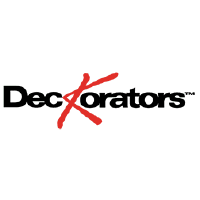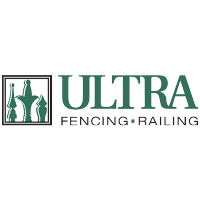How Much Does Building a Deck Cost?
Ah, nothing beats relaxing outside with friends or family on a brand new deck. For homeowners in the St. Louis area, adding a deck can be a smart way to boost your home’s value, create more outdoor living space, and add a touch of style to your backyard. But before we start picturing fire pits and pergolas, most of us share the same key question: how much does building a deck cost?
The answer isn’t as straightforward as we’d like. The total cost depends on several factors, including your choice of decking materials, the size and layout of your deck, and the labor needed for a safe installation. Let’s break it all down so you know what to expect and where your investment makes the most sense.
What Affects the Cost of Building a Deck?
Building a deck isn’t a one-size-fits-all project. Costs can swing widely depending on what you want and what your property needs. To get the most accurate idea of your deck cost estimates, it helps to look at the main variables that shape the price tag of every deck project.
1. Deck Size and Layout
Think of square footage first: the larger the deck, the more you’ll need to invest in materials and labor. A small, 200-square-foot ground-level deck will cost much less than an elaborate multi-level deck design that wraps around your home. Want something custom, like curved edges, built-ins, or floating decks? These creative shapes and levels can take more time and materials, and increase the overall cost.
2. Material Choices and Upgrades
The type of material you choose plays a huge role in your new deck’s look, lifespan, and new deck cost. While wood decks remain a classic choice, composite materials like Trex decking are gaining ground due to durability and lower maintenance. Upgrades, such as adding a hot tub, custom railings, pergola, or high-end finishes, can make your deck pop, but will bump up the upfront decking price.
For those considering high-performance options, our Composite Decking Options offer insight into long-lasting and visually appealing choices.
3. Labor Costs and Professional Installation
Labor costs are a key part of the budget. Hiring experienced pros means your deck installation is built to last and complies with local building codes. While DIY deck projects might save on initial labor expenses, mistakes can lead to pricey repairs or a deck that doesn’t stand the test of time. Homeowners should also remember that labor costs can fluctuate based on deck complexity and contractor demand.
Deck Materials: Budget-Friendly to More Expensive
Material costs make up a big share of your total deck budget. Your choice of decking materials affects not just the upfront price, but also long-term performance and maintenance. Let’s look at the main options, from classic wood to composite to extras like deck boards, hardware, and railings.
Traditional Wood Decking
Classic wood decks never go out of style, and there’s a range of choices based on your budget and taste:
- Pressure-treated wood: The most budget-friendly. It resists rot but may need regular upkeep and can warp without proper care.
- Redwood and cedar: Naturally beautiful and more resistant to rot than standard pine, but might cost more.
- Tropical hardwoods (like ipe or tigerwood): While stunning and built to endure, these hardwoods can have some of the highest costs per sq. ft. Installation is usually tougher, but the tradeoff is that you can get unique grain and color.
Want to learn more about these options? Check out our insights on Wood Decking Materials.
Composite Decking
Composite decking, including brands like Trex, is made from a blend of recycled wood fibers and plastic. It’s known for being durable, low maintenance, and resistant to warping, rot, and pests. The average cost is higher than basic wood.
Premium lines can go up significantly per square foot, but the payoff is a long lifespan with minimal upkeep.
Many homeowners prefer composite for its variety of colors and fade-resistant finishes. While the initial material costs are steeper, these decks typically outlast many wood options, making it a top pick for busy families who want to spend more time relaxing, not staining or sealing.
For a deeper look at composite options, our page on Composite Decking Options is a great resource.
PVC Decking
PVC (polyvinyl chloride) decking is a premium, low-maintenance option made entirely from synthetic materials, as in, no wood content. It’s exceptionally resistant to moisture, mold, insects, and fading, making it ideal for high-humidity areas or decks near pools and hot tubs. While PVC decking often comes at a higher price point than both pressure-treated wood and composite, many homeowners find the investment worthwhile for its long-lasting performance and virtually maintenance-free upkeep.
PVC decking is also lightweight, making it easier to transport and install in certain applications. Brands like AZEK (by TimberTech) offer a wide range of colors and finishes that mimic the look of real wood without the upkeep. If you’re looking for a sleek, durable, and modern deck material that stays cool underfoot and doesn’t require staining or sealing, PVC might be the right fit for your project.
Other Cost Factors: Hardware, Railings, and Extras
Your deck’s total cost isn’t just about boards and beams. Every project includes essential extras:
- Hardware and Fasteners: Quality screws, hidden fasteners, joist hangers, and flashing help your deck last longer.
- Railings and Balusters: Upgrades like cable or glass railings can push prices higher, while basic wood rails keep costs down.
- Special Add-ons: Planning for a built-in hot tub, lighting, or integrated landscaping? These features add comfort and style but also extra dollars to the project.
- Building Permits and Codes: Most cities, including St. Louis, require permits for deck projects. Factor this into your renovation budget so you meet all code requirements.
General Deck Costs FAQ
The FAQs below are based on general industry research and provide ballpark figures to help you plan. Actual pricing can vary depending on your location, specific project, materials, and site conditions. These numbers do not represent official pricing from Outdoor Living Inc.
For an accurate, personalized estimate, please contact us directly. We’re happy to provide a free quote tailored to your home and vision.
How much does it cost to build a deck?
On average, a deck in 2025 costs between $10,000 and $35,000. Most homeowners pay around $25,000. Prices depend on size, materials, and labor. A basic 12×12-foot deck might run $10,000 to $15,000. High-end decks with custom features or premium materials can cost $20,000 or more.
What affects the total price of a new deck?
Key factors include deck size, type of materials, design complexity, local labor rates, and add-ons like stairs or benches. Removing an existing deck or making site improvements will also raise your total.
How much does deck material cost?
Pressure-treated wood costs about $5 to $10 plus installation. Composite decking ranges from $8 to $24 per square foot for materials, but installation brings the total to $60 to $100 per square foot. Premium hardwoods like Ipe or mahogany can run $15 to $75 per square foot plus installation.
How much should I budget for labor?
Plan for $50 to $80 per square foot for labor, depending on where you live and your project’s difficulty. Labor often accounts for half or more of the total bill.
Do simple decks cost much less than multi-level or custom decks?
Yes. Simple, ground-level decks are usually on the lower end of the price range. Multi-level, floating, or curved decks add labor hours, engineering, and special materials, making them much pricier.
Is it cheaper to build my own deck?
DIY can cut costs by 30% to 50% because you save on labor. However, you’ll still need to buy materials, get permits, and possibly rent or buy some tools. Mistakes can be expensive, so only take this route if you’re handy and ready to follow local building codes.
What extras can add to the cost?
Stairs can be one of the most expensive parts of the deck. They are also the most critical to be built properly for safety.
Does the cost vary depending on where I live?
Yes. Urban areas or regions with a high cost of living usually have higher labor rates. Some locations may also require stricter permits, adding to your expenses.
How much will permits and inspections cost?
Depending on your city, permits can cost $100 to $500 or more. Inspections may be extra. Always check your local regulations to avoid fines or delays.
What kind of return can I expect on my investment?
A well-built deck can increase your home’s value. Many homeowners recoup up to 89% of the cost when they sell their house.
How much does it cost to maintain a wood or composite deck?
Pressure-treated wood needs annual sealing or staining, costing $500 to $1,000 a year. Composite and premium woods cost more upfront but need less upkeep, saving you time and money over the years.
Can I finance a deck project?
You have options: home equity loans, lines of credit, personal loans, or credit cards. Home equity lines usually offer lower rates if you qualify. Consider what works best for your budget and timeline. Outdoor Living does not offer financing, but we are happy to talk about payment plans and working with your budget.
Is composite decking worth the higher cost?
Yes! For many homeowners, composite decking pays off in the long run. Though the upfront cost is higher than pressure-treated wood, composite decks require far less maintenance, last longer, and resist issues like warping, splintering, and fading.
Do I need a permit to build a deck?
Yes, in most areas—including the St. Louis metro—permits are required for new deck construction or major renovations. Outdoor Living Inc. handles the permit process for you when we build your deck, ensuring all code requirements are met.
Can I install the deck myself if I buy materials from Outdoor Living Inc.?
Absolutely. We supply decking and fencing materials to both contractors and DIY homeowners. Our experienced sales staff can help you choose the right materials and guide you through product options that fit your skill level and design goals.
What’s the difference between composite and PVC decking?
Composite decking is made from a mix of recycled wood fibers and plastic, offering a wood-like appearance with less maintenance. PVC decking, on the other hand, is made entirely from synthetic material, making it more moisture-resistant, lighter, and even lower maintenance, which is ideal for wet or high-heat environments.
Getting a Personalized Deck Cost Estimate
No two homes, families, or backyards are exactly alike. That’s why getting a professional estimate is smart. A seasoned deck builder will consider your square footage, type of deck, add-ons, and local labor rates. You’ll receive a custom breakdown of material costs, labor expenses, and any additional costs, so you know where your money is going.
Want to learn all about decks and what’s involved in putting together an accurate deck cost? Our team provides free estimates tailored to your needs and offers clear guidance from start to finish.
Contact Outdoor Living Inc.
Building a new deck is a big decision and a significant investment in your home’s future. Take time to plan what kind of outdoor living space fits your lifestyle, how much deck size and upgrades matter, and what your budget will allow. Remember, whether you choose wood, composite, or PVC, every type of material has its pros and cons regarding upfront and long-term costs.
If you’re unsure how your vision aligns with your bank account, don’t be afraid to ask about payment arrangements. Working with a skilled team means you’ll feel confident your new deck is safe, stylish, and built to last. When you’re ready to upgrade that old deck or start fresh, professional help makes the process smoother. Plus, the results are something you’ll enjoy for years.
Ready to start your deck project, or just want honest answers on pricing? We’re here to help you make the best decision for your home improvement goals in St. Louis.







